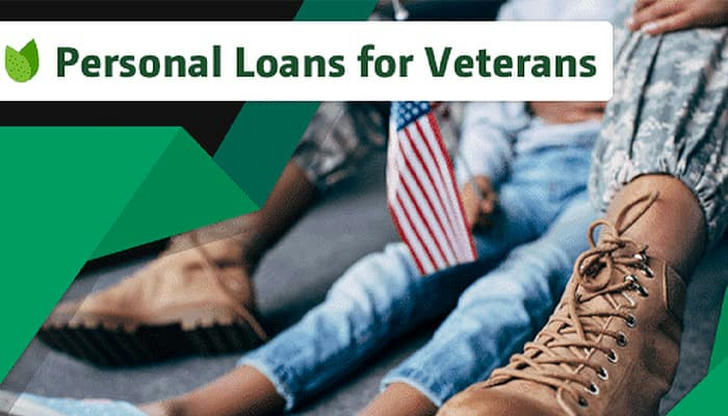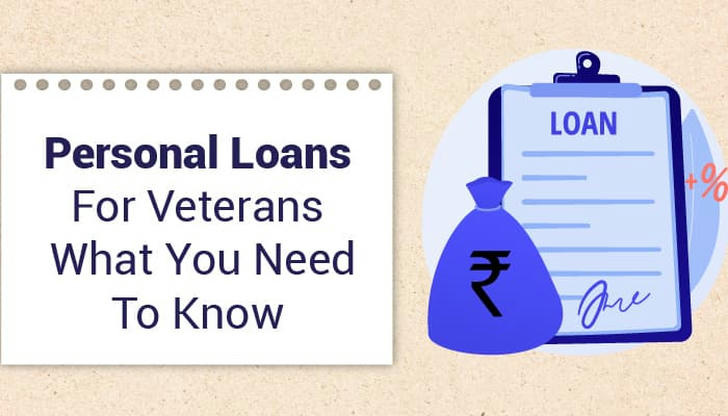How Veterans Can Find Personal Loans for Emergencies?

Sometimes it can occur people do not expect, and for warriors, the separate question is to be financially stationary, at least till they obtain steady work. Sometimes such unexpected expenses are medical bills, home or car repairs, or perhaps other emergencies, and learning how to apply for personal loans makes a big difference. This guide gives veterans an understanding with procedures that need to be followed to get emergency personal loans and how to choose the best lender.
Why Veterans Might Need Emergency Loans?

Life after service can come with challenges, including navigating civilian employment, healthcare, or personal financial stability. Here are some common reasons why veterans may seek personal loans:
• Medical bills: Unforeseen health issues can result in substantial costs.
• Home repairs: Veterans who own homes may need funds for urgent fixes.
• Debt consolidation: Combining debts into a single loan can simplify payments and potentially reduce interest rates.
• Unexpected travel expenses: Emergencies may require last-minute travel, which can be expensive.
Types of Personal Loans for Veterans

Veterans have various loan options, including those specifically tailored to their unique needs. Here are a few types:
VA Personal Loans: While not directly offered by the Department of Veterans Affairs, some private lenders provide personal loans with favorable terms for veterans.
Credit Union Loans: Many credit unions, such as Navy Federal Credit Union, offer competitive loan rates for veterans and service members.
Traditional Bank Loans: Big banks often provide personal loans, though approval criteria can be stricter.
Online Lenders: Digital lenders can be more flexible, with faster approval processes, but it’s essential to check for trustworthy reviews and ratings.
How to Qualify for a Personal Loan as a Veteran?

Qualifying for a personal loan often depends on the lender’s requirements. Here’s what veterans typically need:
• Proof of income: Lenders want to see that the borrower has a steady income source.
• Credit score: A good credit score can help secure lower interest rates.
• Debt-to-income ratio: Lenders may review how much of your income goes toward paying existing debts.
Tip: If your credit score is low, look for lenders who consider alternative credit checks or offer “no credit check” loans, but be cautious of high fees.
Top Lenders for Veterans Seeking Emergency Loans

Choosing the right lender involves comparing interest rates, loan terms, and overall reliability. Here are a few lenders that veterans might find beneficial:
- Navy Federal Credit Union
Why choose? Known for catering specifically to service members, Navy Federal offers competitive personal loan rates and flexible terms.
Pros: No origination fees, low interest rates.
Cons: Membership is limited to service members, veterans, and their families.
- USAA
Why choose? USAA provides personal loans with quick access to funds and excellent customer service.
Pros: Trusted by many veterans, no application fees.
Cons: Membership is required.
- PenFed Credit Union
Why choose? PenFed offers loans to both members and non-members, with options tailored to veterans.
Pros: Transparent terms, low fees.
Cons: Non-members may need to join for the best rates.
- SoFi
Why choose? Offers personal loans with flexible repayment options and benefits like unemployment protection.
Pros: No late fees, competitive rates.
Cons: Requires good credit for the best rates.
Steps to Apply for a Personal Loan

Check Your Credit Score: Knowing your credit score helps set expectations for what loan options are available.
Compare Lenders: Use online comparison tools to evaluate interest rates, terms, and reviews.
Gather Necessary Documents: This might include military service records, proof of income, and ID.
Submit the Application: Fill out an application online or in person, depending on the lender.
Review Loan Terms: Before signing, read the fine print to ensure there are no hidden fees.
Tips for Choosing the Best Loan

• Look for lower APRs (Annual Percentage Rates): A lower APR means less money paid over the life of the loan.
• Avoid predatory lenders: Some lenders may prey on veterans by offering high interest rates and hidden fees. Always research the lender’s reputation.
• Consider secured vs. unsecured loans: Secured loans may offer lower interest rates but require collateral (like a car or savings account). Unsecured loans don’t need collateral but may have higher interest rates.
Resources for Financial Assistance Beyond Loans

Before applying for a loan, veterans can explore other financial resources that may not require repayment:
• Grants for veterans: Various organizations and foundations provide emergency grants.
• Non-profit assistance programs: These programs can offer help with bills, food, or housing.
• VA financial counseling services: The VA offers free financial advice that can help veterans navigate their options.
Final Thoughts

There is nothing wrong with personal loans as they can help veterans facing some urgent financial situations; however, the right loan option for them is a critical question. Through proper planning, the loan programs facilitate the combat affecting the veterans without putting much pressure on their pockets.
Skip to the next section Comparing the available options, the search for any additional charges, and the use of support programs and advice. In this way, through being prepared, veterans can be safeguarded by knowing how to plan around financial glitches, and not be bothered by it, or stressing over financial hardships during unfortunate incidents.
